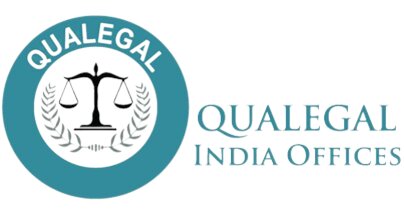Best Health Care Lawyers in New Delhi
Share your needs with us, get contacted by law firms.
Free. Takes 2 min.
List of the best lawyers in New Delhi, India
About Health Care Law in New Delhi, India
Health care law in New Delhi, India, encompasses a complex web of regulations and policies aimed at ensuring the delivery of quality health services while protecting patient rights. The city, being a national capital, is home to numerous public and private health care institutions, making the application of health care laws critical for maintaining standards and addressing legal issues. Health care law in New Delhi involves regulation of medical facilities, enrollment and operation of medical practitioners, patient rights, medical malpractice, and pharmaceutical regulations, among others. The legal framework is guided by various national laws, including the Indian Medical Council Act, Consumer Protection Act, Clinical Establishments Act, and bioethics laws.
Why You May Need a Lawyer
There are several scenarios where individuals or organizations may require legal assistance in the field of health care:
- Medical negligence or malpractice: Patients or their families may seek legal help if they believe that substandard medical care has led to injury or worsened health conditions.
- Health insurance claims: Disputes with health insurance providers regarding claim approvals or coverage may necessitate legal intervention.
- Health care fraud: Lawyers may be required to address cases of fraudulent billing or unauthorized practice of medicine.
- Compliance issues: Health care facilities may need legal counsel to ensure they are in compliance with local or national health regulations.
- Patient rights: Cases related to violations of patient rights, including privacy and consent, may require legal action.
Local Laws Overview
Key aspects of the laws governing health care in New Delhi include:
- The Indian Medical Council Act: This law regulates the standards of medical education, recognition of medical qualifications, and the maintenance of the Indian Medical Register.
- The Consumer Protection Act: Under this act, patients can file complaints against errant health care providers for deficient services.
- The Clinical Establishments Act: This provides a regulatory framework for health care facilities, ensuring they maintain certain standards for infrastructure and services.
- Bioethics and Human Rights: Various guidelines and ethical standards govern patient consent, confidentiality, and ethical treatments.
Frequently Asked Questions
What is medical negligence?
Medical negligence occurs when a health care professional fails to provide the standard of care expected, resulting in harm to the patient. This can include errors in diagnosis, treatment, aftercare, or health management.
How can I file a complaint against a health care provider?
Complaints can be filed with the consumer courts under the Consumer Protection Act or with medical councils, depending on the nature of the grievance. Legal counsel can guide you through the process.
What rights do patients have in New Delhi?
Patients have rights related to informed consent, confidentiality, treatment choices, and the right to receive standard medical care. These are enshrined in various laws and ethical guidelines.
Can a lawyer help with health insurance disputes?
Yes, attorneys can help interpret policy terms, negotiate with insurers, and represent clients in claims disputes, to ensure rightful reimbursement or coverage.
What are the penalties for medical malpractice?
Penalties can range from compensation to the aggrieved party to suspension of medical licenses, depending on the severity of the malpractice.
Are there any organizations that protect patient rights?
Yes, organizations like the Patients' Rights Organization and legal advocacy groups work to uphold and protect patient rights.
How does one become a registered medical practitioner in New Delhi?
One must complete requisite medical education, register with the Medical Council of India, and adhere to ongoing educational and ethical standards.
What legal steps should a health care facility take to ensure compliance?
Facilities should regularly review regulations, implement compliance programs, engage in staff training, and consult with legal experts.
Is telemedicine legal in New Delhi?
Yes, telemedicine is legal and regulated under the Telemedicine Practice Guidelines, ensuring remote consultations are conducted responsibly and ethically.
What should be done in case of health care fraud?
Instances of fraud should be reported to statutory bodies, and legal counsel should be sought to address any financial or ethical violations involved.
Additional Resources
Consider reaching out to the following resources for assistance and more information:
- Medical Council of India: For queries related to medical licensure and practitioner conduct.
- Delhi State Legal Services Authority: Provides free legal services and advice.
- World Health Organization (India Office): For information on health care standards and practices.
- Health and Family Welfare Department of Delhi: Governs public health policies and initiatives.
Next Steps
If you require legal assistance in health care, consider the following steps:
- Consultation: Seek an initial consultation with a lawyer specializing in health care to understand your legal position and options.
- Documentation: Gather all relevant documents, including medical records, correspondence, and other evidence, to support your case.
- Research: Familiarize yourself with basic health care laws and your rights to better understand your situation.
- Contact Legal Aid Societies: These can provide free or affordable legal service if cost is an issue.
- Continuous Communication: Stay informed and maintain regular communication with your lawyer to ensure your case progresses smoothly.
Lawzana helps you find the best lawyers and law firms in New Delhi through a curated and pre-screened list of qualified legal professionals. Our platform offers rankings and detailed profiles of attorneys and law firms, allowing you to compare based on practice areas, including Health Care, experience, and client feedback.
Each profile includes a description of the firm's areas of practice, client reviews, team members and partners, year of establishment, spoken languages, office locations, contact information, social media presence, and any published articles or resources. Most firms on our platform speak English and are experienced in both local and international legal matters.
Get a quote from top-rated law firms in New Delhi, India — quickly, securely, and without unnecessary hassle.
Disclaimer:
The information provided on this page is for general informational purposes only and does not constitute legal advice. While we strive to ensure the accuracy and relevance of the content, legal information may change over time, and interpretations of the law can vary. You should always consult with a qualified legal professional for advice specific to your situation.
We disclaim all liability for actions taken or not taken based on the content of this page. If you believe any information is incorrect or outdated, please contact us, and we will review and update it where appropriate.













